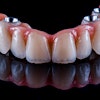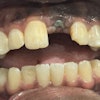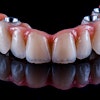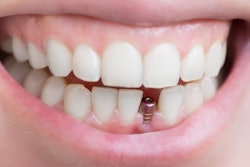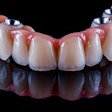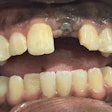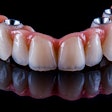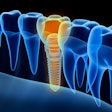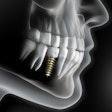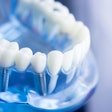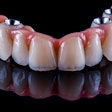
When it comes to nicotine-containing products, the ones most detrimental to dental implants may be surprising. Water pipe and smokeless tobacco use may lead to poorer implant outcomes than cigarette smoking or vaping, according to new research.
Overall, the tissues surrounding the implants of patients who used electronic cigarettes were not significantly different from those who used no nicotine or tobacco products, according to a study conducted by researchers at Semmelweis University in Hungary.
"It is a misbelief that smokeless products or water pipes are a safer alternative when in fact they have a more detrimental effect on the tissues around implants than traditional cigarettes," wrote the study's author, Dr. Barbara Kispélyi, an associate professor of periodontics at Semmelweis University, in a university news article published on June 12.
Smoking is a factor linked to dental implant failure. As other types of nicotine and tobacco use gain in popularity, it was important to learn how they may affect dental implants.
To compare the different types of nicotine products, a meta-analysis was conducted. For this analysis, 32 studies were reviewed.
Based on clinical inflammatory factors, including bleeding on probing in the pocket between the implant and the gum, rate of bone loss, and increased fluid in the pocket, nonsmokers had the least amount of marginal bone loss while most nicotine-containing product users had much higher ones, according to the study, which was published in Nicotine & Tobacco Research (April 15, 2024).
In terms of marginal bone loss, cigarette smokers had a mean difference [MD] of 1.34 and a confidence interval [CI] of 0.85, 1.79. Water pipe users, however, had an MD of 1.58 and a CI of 0.84, 2.35. Smokeless tobacco had an MD of 2.53 and a CI of 1.20, 3.87. E-cigarette users did not show a major difference compared to nonsmokers (MD: 0.52; CI: −0.33, 1.36), according to the study.
Nevertheless, the analysis had limitations, including that observational studies were included. The articles included various screening methodologies for gingival and plaque indices, therefore, only a limited number of studies could be included, the authors wrote.
Moreover, this analysis showed that any kind of nicotine-containing product may have a negative impact on peri-implant health.
"It is essential to address the misconception that smokeless tobacco and waterpipe is safer to use than conventional cigarettes," Kispélyi wrote in the study.

